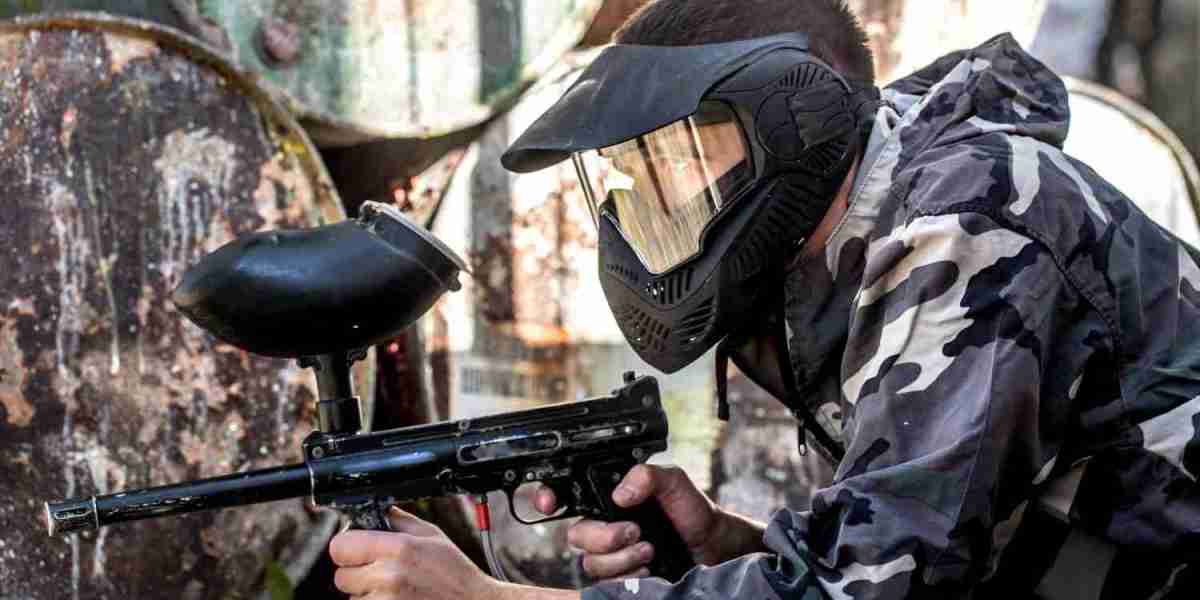In South Africa, where personal safety is a significant concern due to elevated crime levels—27,494 murders reported in 2022/23—non-lethal self-defense tools like pepper spray and air guns provide accessible, legal alternatives for protection. Available online, these devices cater to individuals seeking to deter threats effectively—pepper spray with its immediate incapacitating effects, and air guns with their capacity for precision and intimidation. This article explores their development, technical details, self-defense applications, and combined utility, concluding with a comprehensive FAQ.
Pepper Spray: Instant Deterrence
Historical Development
Pepper spray, derived from the natural compound capsaicin found in chili peppers, was first weaponized in the 1970s for law enforcement use in the United States. By the 1980s, it became available to civilians as a non-lethal defense tool, gaining popularity in South Africa due to its simplicity and legal status. Its evolution reflects a growing need for effective, portable protection in high-crime environments.
Technical Specifications
Pepper spray is an aerosol containing oleoresin capsicum (OC), typically at 5-10% concentration, delivering a burning sensation to the eyes, skin, and respiratory system. Available in canisters (20-60ml), it projects a stream, mist, or fog up to 3-5 meters, with effects lasting 15-45 minutes. Priced between R100 and R300, units often include keychain attachments or safety locks, weighing under 100g for easy carry.
Applications in Self-Defense
Pepper spray excels in close-range self-defense scenarios. In an urban South African setting, a quick spray to an assailant’s face causes temporary blindness, coughing, and disorientation—allowing the user to escape. Its lightweight design suits everyday carry, and its legal status—no firearm license required—makes it a practical choice for personal protection, especially in high-risk areas like Johannesburg or Cape Town.
Air Guns: Precision and Intimidation
Historical Development
Air guns, encompassing spring-piston and pneumatic models, date back to the 16th century, with early versions used for hunting and warfare. Modern air guns adapted for self-defense emerged in the 20th century, driven by demand for non-lethal alternatives to firearms. In South Africa, their use has expanded as a legal defense option, supported by their accessibility and effectiveness in deterring threats.
Technical Specifications
Air guns fire lead pellets—commonly 4.5mm (0.177 caliber)—at velocities of 400-1000 fps, depending on the power source (spring, CO2, or PCP). They feature rifled barrels for accuracy, single-shot or multi-shot mechanisms (up to 10 rounds), and weigh 2-4kg. Prices range from R1000 to R5000, with models offering scopes or ergonomic grips. Below 5.7 joules, they require no firearm license in South Africa, aligning with self-defense regulations.
Applications in Self-Defense
For self-defense, air guns provide a credible deterrent at medium range (10-20 meters). A homeowner might use one to confront an intruder—firing a pellet to inflict pain and signal seriousness, potentially halting an attack. The audible report and visible weapon enhance its psychological impact, while its legal status ensures compliance with South African laws, making it suitable for home or property defense.
Historical Context: Addressing Modern Threats
Pepper spray evolved from a natural irritant to a refined self-defense tool by the late 20th century, meeting South Africa’s need for immediate, portable protection against crime. Air guns progressed from early air-powered devices to versatile modern systems, offering a non-lethal option with greater range and intimidation—both driven by the country’s security challenges. Together, they represent a response to contemporary safety demands.
Practical Applications: Self-Defense Scenarios
In a Pretoria alley, an individual activates pepper spray against an approaching mugger—the spray’s 3-meter reach blinds and repels, securing an escape. In a Durban home invasion, an air gun fires a 4.5mm pellet at 15 meters, striking an intruder’s leg—pain and surprise stop the threat. Real-world instances include urban residents using pepper spray to thwart robberies and homeowners deploying air guns to protect property—demonstrating their practical utility in self-defense.
Pepper Spray vs. Air Guns: Complementary Tools
Pepper spray and air guns serve distinct yet synergistic roles in self-defense. Pepper spray (R100-R300, <100g) offers instant, close-range incapacitation—ideal for sudden encounters—with no training required. Air guns (R1000-R5000, 2-4kg) provide precision and intimidation at 10-20 meters, requiring basic aiming skills but offering multi-shot capability. Both are legal—pepper spray unrestricted, air guns under 5.7 joules unlicensed—forming a layered defense strategy: spray for proximity, gun for distance.
Maintenance and Handling
Pepper spray requires storage away from heat—canisters can leak or burst—and periodic shaking to maintain potency; check expiration (2-5 years). Air guns need barrel cleaning, lubrication, and power source checks (spring tension, CO2, or air pressure); store securely to prevent misuse. Safe use involves testing pepper spray directionally, treating air guns as firearms, and adhering to self-defense laws to avoid escalation or legal issues.
Conclusion: Strategic Self-Defense Solutions
Pepper spray and air guns offer South Africans effective, non-lethal self-defense options tailored to different threats—immediate incapacitation versus ranged deterrence. Legally accessible and affordable, they address the need for personal security in a high-crime context. Together, they provide a comprehensive approach to protection, empowering users with confidence and capability.
FAQs: Pepper Spray and Air Guns for Self-Defense
How effective is pepper spray in stopping an attacker?
Pepper spray causes intense burning and disorientation for 15-45 minutes—highly effective at 3-5 meters for escape.
Can air guns deter an intruder?
Yes, air guns firing at 400-1000 fps inflict pain and intimidate—effective at 10-20 meters to halt a threat.
Is pepper spray legal in South Africa?
Yes, pepper spray requires no license and is fully legal for self-defense, with no restrictions on carry.
Do air guns need a license for self-defense use?
Air guns under 5.7 joules are license-free in South Africa—legal for personal protection without firearm permits.
What range is best for self-defense with these tools?
Pepper spray works at 3-5 meters; air guns at 10-20 meters—covering close and medium distances.
How long does pepper spray last before needing replacement?
Pepper spray remains effective for 2-5 years—check expiration to ensure reliability in an emergency.














